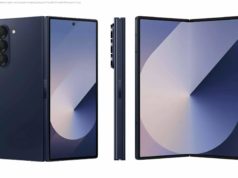Microsoft has completely revamped its Edge browser, basing it on the same Chromium platform as Google’s Chrome. We pit the two browsers against each other.
Google Chrome remains the king of the web browsers, with almost exactly 70% market share. Microsoft’s newest Edge browser, which uses the Chromium open-source engine, has taken over second place from Mozilla’s Firefox at 7.9%. And now, Microsoft is pushing the new Edge to all Windows 10 desktops, replacing the old Windows 10 version and giving Edge a built-in, well… edge.
But which should you actually use? The two share a lot of similarities, but some key differences make one the clear winner.
Let’s start with the obvious: How is each for general browsing? Well, in terms of design, they’re almost identical. A lot of the old-school design elements of the original Edge browser are gone, replaced with rounder edges and cleaner interfaces.
Sure, the arrow buttons and other icons on Edge and Chrome look slightly different, but the URL/search bar are essentially the same, and the icons for extensions and add-ons are in the same place. Right-click to the right of the tabs and you’ll see exactly the same tabs menu. In short, if you switch from Chrome to Edge, you’ll notice very little difference in your everyday browsing. One obvious difference, though, is in the default search engine and homepage. Edge defaults to Microsoft’s Bing, naturally, while Google defaults to Google’s search engine. Either can be switched at will, however, and so is only a temporary nuisance.
Edge and Chrome are both built on the Chromium open-source browser using the Blink rendering engine, and as such they’re more similar than they are different. I sometimes have to remind myself which I’m using.
The similarities continue in performance. These are both very fast browsers. Granted, Chrome narrowly beats Edge in the Kraken and Jetstream benchmarks, but it’s not enough to recognize in day-to-day use.
Microsoft Edge does have one significant performance advantage over Chrome. Memory usage. Quite simply, Edge uses fewer resources. Chrome used to be known for how little RAM it used, but these days, it’s become bloated. Edge used 665MB of RAM with six pages loaded while Chrome used 1.4GB — that’s a meaningful difference, especially on systems with limited memory.
If you’re someone who’s bothered by how much of a memory-hog Chrome has become, Microsoft Edge is the clear winner in this regard.
Start
United States
USA — software Microsoft Edge vs. Google Chrome: Performance, design, security, and more






